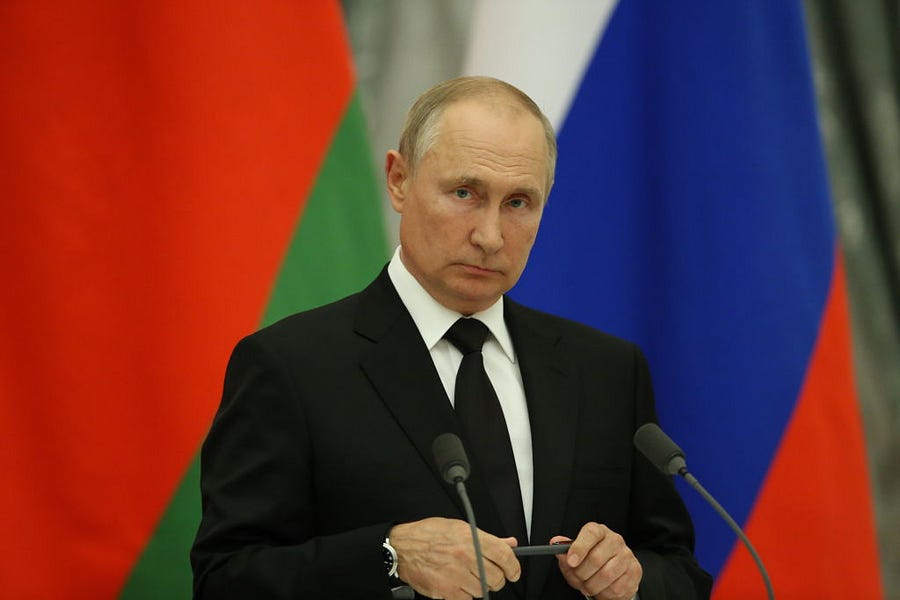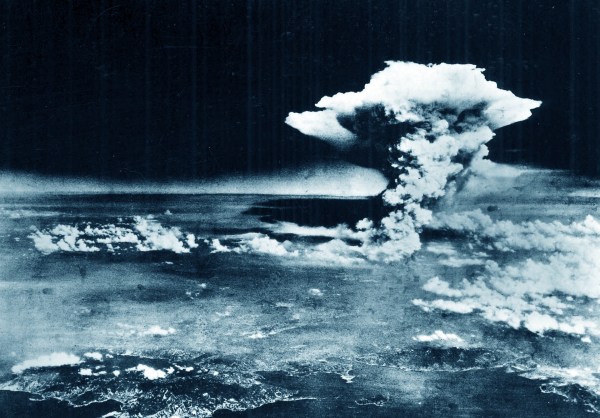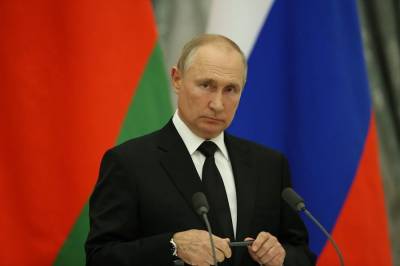After President Biden’s phone call with Russian President Vladimir Putin two weeks ago, the Russian government presented the text of two proposed “treaties” on security arrangements in Europe to the United States. This was meant to appeal to the Biden administration’s professed goal of “relentless diplomacy” to de-escalate the tensions created by Russia’s military build-up around Ukraine. On Friday, the Russian Foreign Ministry published the two draft treaty texts (one a bilateral treaty with the U.S. and the other an agreement between Russia and NATO). The publication of the treaty texts has called Russian good faith into question and raised concerns that these proposals incorporating Putin’s so-called “red lines” are really a non-negotiable pretext for Russian military action against Ukraine.
That may well turn out to be true—and there are increasing signs that an invasion is coming—but they also reveal that Putin’s true objective is to destroy NATO and roll back 30 years of European history to a time before the collapse of the Soviet Union, an event that he has characterized as “a genuine tragedy” and “the greatest geopolitical catastrophe of the 20th century.” Unfortunately, the Biden administration, despite having admirably sketched out potential additional sanctions and careful consultations with allies, may be inadvertently abetting Putin by suggesting that some elements of these proposals could be the basis for negotiation and concessions to Russia.
Although most of the focus of discussion about the Russian demands has been on Ukraine, the breadth of what Russia is seeking suggests that Putin is looking for much more than assurance on Ukraine. Rather he is seeking to re-establish a Soviet-like sphere of influence for Russia over which he would prevent countries such as Ukraine and Georgia from seeking membership in NATO and the EU and block those bodies from becoming attractive alternatives to the stagnant, authoritarian system he oversees in Russia. Just as importantly, Putin hopes to call into question the ability of the U.S. and NATO to defend the states that have joined the alliance since 1997. In doing so he is, in effect, reneging on numerous international undertakings that Russia has made since the Cold War ended.
The hypocrisy, even Orwellian quality, of Russian desiderata is apparent from the preambulatory language of the proposed treaties. They recall the post-Cold War commitment of both sides to refrain from the use of force or the threat of the use of force, even as Russia masses troops and equipment on Ukraine’s border and has annexed Crimea. There is clear nostalgia for the days of the Cold War in the language recalling an entire series of U.S.-Soviet agreements reached at the height of the nuclear standoff of the bipolar era.
The proposed treaty with Washington is replete with demands for one-sided concessions that would sever long-standing security links between the U.S. and Europe. Article 1 calls on the sides to refrain from implementing “measures in the framework of [a] military alliance … that could undermine the core security interest of the other party” would amount to a potential Russian veto over any U.S. defense measure in Europe.
Article 4 calls on the U.S. to “prevent” the enlargement of NATO eastward and deny accession to the alliance of any former republics of the USSR. Apparently Russian diplomats believe that NATO operates much as the Warsaw Pact did, with the U.S. dictating to the other allies rather than operating through consensus as the alliance, in fact, does.
Article 5 would limit deployments of “armed forces and armaments” in areas where Russia might perceive them as a threat. This would explicitly include aircraft and naval vessels outside national territorial waters, and would, in effect, put an end to the traditional U.S. role of maintaining freedom of the seas and international air space.
Article 6 would ban the deployment of intermediate and short-range ballistic missiles by the U.S. in Europe, despite the fact that Russia has already deployed dual-capable SS-26 “Iskander” missiles in Kaliningrad that can reach much of central Europe and has developed intermediate-range missiles that cover large swaths of the continent from the western military district of Russia. Such a self-abnegating undertaking would run the risk of reproducing the missile imbalance that the USSR created in the 1970s that European leaders worried would decouple the defense of Europe from that of the United States and, at the same time, remove whatever incentive Russia might have to reach arms control agreements to limit such missile deployments on their part.
The proposal’s Article 7 calls for an end to the forward deployment of U.S. nuclear weapons in Europe, which would bring an end to the U.S. strategy of extended nuclear deterrence for our allies. Recent discussions of possible adoption of a posture of “no first use” of nuclear weapons has already made clear that allies regard this as a sine qua non of the North Atlantic alliance.
For its part, the proposed agreement with NATO repeats many of the self-denying undertakings with regard to enlargement of the alliance and deployment of intermediate and short-range ballistic missiles. It also adds requirements to withdraw military forces and equipment from the territory of NATO member states that were not members before the alliance agreed to enlarge in 1997, and forbids military activity (presumably including exercises and training) in Eastern Europe and Central Asia. These measures would undo steps that the U.S. has taken since the Russian seizure of Crimea and invasion of Eastern Ukraine to reinforce conventional deterrence in Europe and would make the Biden administration’s promise to create an effective “over-the-horizon” counterterrorism capability to deal with the consequences of the Taliban victory in Afghanistan more difficult and expensive.
The Biden administration seeks to “de-escalate” the situation that Russia has created around Ukraine. As Churchill famously said, “Jaw-Jaw is better than War-War,” but negotiating under a coercive threat of implied violence against Ukraine on a document that is clearly contrived to drive wedges and undermine NATO is a bad idea. The administration has rightly pointed out that there are existing mechanisms (including those to which the Russian proposals advert) like the NATO-Russia Council and the Organization for Security and Cooperation in Europe (OSCE) where Russia can present its concerns about the security situation in Europe. Although there is nothing intrinsically wrong with supplementing those consultations with bilateral U.S.-Russian discussions, the administration should make clear that all of the proposals in the Russian documents are unacceptable and cannot be the basis of negotiations over the future of security in Europe.
Eric S. Edelman is counselor at the Center for Strategic and Budgetary Assessments. He was U.S. ambassador to Finland (1998-2001), ambassador to Turkey (2003-2005), and under secretary of defense for policy from 2005 to 2009.
Ian Kelly is the ambassador (ret.) in residence at Northwestern University. He was U.S. ambassador to the Organization for Security and Cooperation in Europe (2010-2013) and ambassador to Georgia (2015-2018).
David J. Kramer is director of European and Eurasian Studies at Florida International University’s Steven J. Green School of International and Public affairs and served as assistant secretary of state for democracy, human rights and labor in the George W. Bush Administration.






Please note that we at The Dispatch hold ourselves, our work, and our commenters to a higher standard than other places on the internet. We welcome comments that foster genuine debate or discussion—including comments critical of us or our work—but responses that include ad hominem attacks on fellow Dispatch members or are intended to stoke fear and anger may be moderated.
With your membership, you only have the ability to comment on The Morning Dispatch articles. Consider upgrading to join the conversation everywhere.